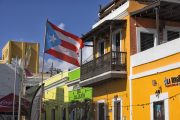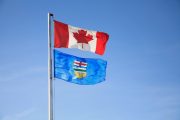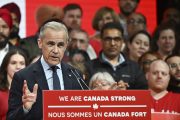A private luxury island estate with yacht, palatial home and top-of-the-line amenities. A royal lifestyle. Mistresses and illegitimate children. A drug empire. Murder of loyal subordinates for political expediency. These are some of the revelations in a new book, The Double Life of Fidel Castro: My 17 Years as Personal Bodyguard to El Lider Maximo by Juan Reinaldo Sanchez. Published in France last year, it is being released in English on May 12 by St. Martin’s Press.
For the better part of six decades, communist dictator Fidel Castro (shown) has been the darling of the Hollywood glitter set, the tenured radicals of academia, and the establishment media gallery. Even when forced by unavoidable facts to acknowledge his despotic tendencies and the oppressive nature of his regime, Castro’s apologists have always sought to soften all criticism by claims that “El Jefe” (The Chief) is a “man of the people,” a “beloved leader,” a “tireless worker,” a true son of the revolution. A central part of that scripted myth is that the selfless “Lider Maximo” (Maximum Leader), now 88 years old, lives an austere lifestyle, in solidarity with the economic hardships endured by the Cuban people in their Castro-imposed socialist sinkhole.
Now, as the Obama administration prepares to normalize relations with Cuba, the book by Sanchez is shedding new light on the dark shadows and hidden corners of the totalitarian regime run by Fidel and Raul Castro, including the typical double standard that has been the hallmark of all Communist Party-led “People’s” regimes: luxury and privilege for the Party leaders — privation and squalor for the people.
The book by Sanchez appeared first in French last year and is appearing in a English edition to be released by St. Martin’s Press (an imprint of publishing giant Macmillan) on May 12. The New York Post published pre-release excerpts from the book on May 3.
In the chapter on Castro’s drug trafficking, Sanchez relates the cold-blooded manner in which Fidel sacrificed two of his most trusted lieutenants, Generals Arnaldo Ochoa and José Abrantes, in order to cover up his own role in the narcotics trade.
“In 1986, when economic aid from Moscow was starting to dry up,” Sanchez reported, “Castro founded the MC Department (for moneda covertible, or ‘covertible currency’), which traded in goods — illegal and legal — for hard currency from third parties, principally Panama. The MC Department soon acquired another nickname: the ‘Marijuana and Cocaine Department.’”
“But the Americans became suspicious of Cuba’s drug dealing, and scandal loomed,” Sanchez noted.
According to Castro’s former bodyguard:
Fidel decided to take action to nip any possible suspicion about him in the bud. He used the official daily paper, Granma, to inform its readers that an inquiry had been opened. Among the arrested were the respected revolutionary general Arnaldo Ochoa and the minister I had overheard talking to Castro, José Abrantes.
The Machiavellian Fidel, while declaring himself “appalled” by what he pretended to have discovered, claimed that “the most honest imaginable political and judicial process” was under way.
Obviously, the reality was completely different. Comfortably installed in his brother Raúl’s office, Fidel Castro and Raúl followed the live proceedings of Causa No.1 and Causa No. 2 on the closed-circuit TV screens. Both trials were filmed — which is why one can today see large sections of it on YouTube — and broadcast to every Cuban home, though not live: The government wanted to be able to censor anything that might prove embarrassing.
“Fidel even had the means to alert the president of the court discreetly,” says Sanchez, “via a warning light, whenever he thought a session should be interrupted. And during breaks, the president of the court, the public prosecutor and the jury members would swarm out onto the fourth floor of the ministry to take their instructions from Fidel, who, as usual, organized and ordered everything, absolutely everything.”
General Ochoa, who had served Castro faithfully, was executed. The execution was recorded on videotape.
“Castro made us watch it,” Sanchez records. “That’s what the Comandante was capable of to keep his power: not just of killing but also of humiliating and reducing to nothing men who had served him devotedly.”
Gen. Abrantes was sentenced to prison, where he died under suspicious circumstances two years later. According to Sanchez, the trial and execution of Gen. Ochoa caused Raul Castro to plunge into “the worst bout of alcoholism of his life. He had taken part in the assassination of his friend.”
But, according to Sanchez there was an additional factor responsible for Raul’s descent into alcoholism: fear. “Having watched the elimination of his counterpart, Abrantes, Raúl could logically fear that he, too, would be hounded from his position of defense minister.”
Sanchez says he witnessed Fidel admonishing his younger brother to stop the drunkenness and assured him that if he pulled himself together he would not suffer the same fate as Ochoa or Abrantes. The aged tyrant stepped down as “president” in 2006, citing health reasons, and formally handed over power to Raul (age 83) in 2008. Fidel had not appeared in public for more than a year, when he emerged on March 30 of this year to meet a delegation of fellow Marxists from Venezuela.
Luxury for the Commandante
“Contrary to what he has always said, Fidel has never renounced capitalist comforts or chosen to live in austerity. Au contraire, his mode de vie is that of a capitalist without any kind of limit,” Sanchez writes. “He has never considered that he is obliged by his speech to follow the austere lifestyle of a good revolutionary.”
Sánchez, now 66 and living in America, says Castro enjoyed a private island — Cayo Piedra — which he describes as a “garden of Eden” where Fidel entertains foreign celebrities and political dignitaries.
Castro’s other choice properties, he notes, include a huge estate in Havana boasting a medical center, rooftop bowling alley, basketball court, and luxury bungalow with private marina on the coast.
In an extended interview on French television, Sanchez provided much additional information about Castro and his regime that clashes sharply with the rose-colored propaganda dispensed by the Fidel-friendly U.S. media choir.
Photo of Fidel Castro: AP Images
Related articles:
Ignoring the Full Truth About the Castro Brothers
Obama To Rescind Cuba’s “State Sponsor of Terrorism” Designation




